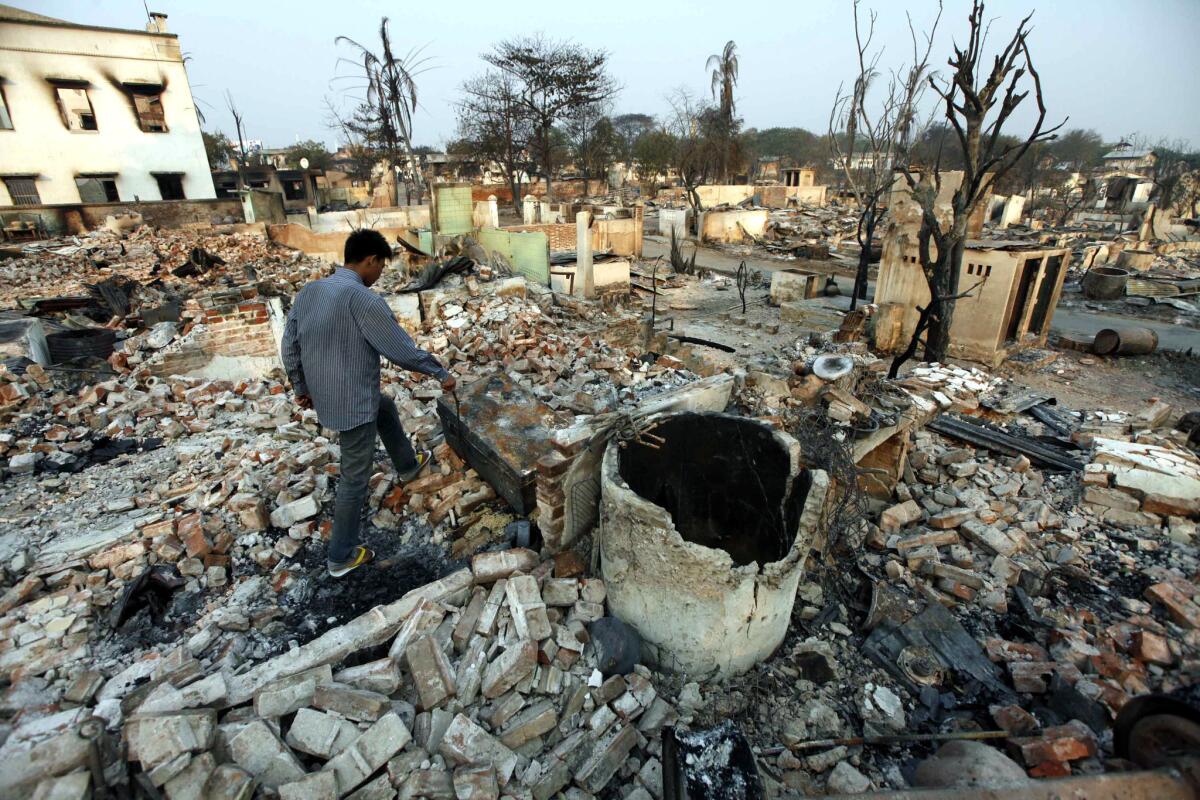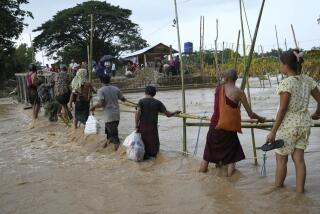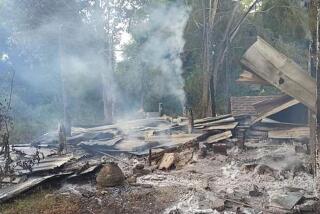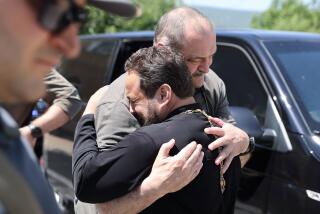Myanmar on edge after new eruption of interreligious violence

As the Myanmar government urged calm, Muslim shops reportedly sat shuttered Monday in the capital of Yangon, a sign of continued unease after the re-eruption of deadly religious violence in the country.
Riots in the central city of Meiktila, reportedly triggered by an argument between Buddhists and a Muslim shop owner, are estimated to have killed at least 32 people last week. Mosques were burned and homes destroyed as mobs attacked Muslims. The violence spread beyond Meiktila through the week and into the weekend, displacing thousands of people. President Thein Sein declared a state of emergency Friday.
Hundreds of miles from the slayings, shops in Yangon kept their doors closed Monday, fearing new attacks, according to local news media.
A Muslim representative from the Interfaith Friendship Organization told the Irrawaddy magazine that vigilante groups formed to patrol streets amid reports of the attempted torching of a Yangon mosque. Rumors of impending riots kept the capital on edge. Residents of a Muslim area told Eleven Media that they were awakened by people driving through their neighborhood, shouting about the destruction of mosques.
The Meiktila violence echoes clashes last year in the western state of Rakhine, where hundreds were slain in riots between majority Rakhine Buddhists and minority Rohingya Muslims. The bloodshed has marred hopes for Myanmar, also known as Burma, as it takes steps toward democratic reform.
The International Crisis Group has suggested that ethnic unrest might actually be a byproduct of reform, by allowing all kinds of causes “unprecedented space to organize that has been denied for decades.”
“This probably represents the most significant challenge to the democratic reform process underway in Myanmar,” said Mark Schneider, senior vice president of the group. “While the government was able to reestablish order, it’s clear that the underlying problems have not yet been dealt with.”
The government vowed Monday to do everything possible to stop the violence. “We also urge the people to avoid religious extremes and violence which could jeopardize the country’s democratic reform and development,” it said on state television, according to the Associated Press.
Human rights groups and United Nations experts say the government must also end systemic discrimination against Rohingya Muslims and address abuses committed during fighting with ethnic Kachin rebels. Human Rights Watch reported that last year, government forces joined in raping and killing Rohingya in Rakhine.
As violence broke out again, “the only thing they keep doing is sending out troops. The soldiers tend to side with people – a lot of times they side with the Buddhist group because they are Buddhists,” said Myra Dahgaypaw, campaign coordinator for the U.S. Campaign for Burma. Reuters reported that residents blamed police for doing little to stop Buddhist mobs.
“This is the time that the government has to prove that they’re trying,” Dahgaypaw said. “Until extremists are brought to justice, this violence is not going to stop.”
Schneider said the government also must foster dialogue between communities to halt the attacks. He cited a recently announced constitutional review commission as a promising route for protecting legal rights for minorities such as the Rohingya.
“They all need to come together and recognize this can’t go on. It’ll destroy their hopes for a peaceful, democratic future,” Schneider said.
ALSO:
Myanmar pivots uneasily away from China
U.S. hands over control of Bagram prison to Afghan government
African Union suspends Central African Republic after president ousted
More to Read
Sign up for Essential California
The most important California stories and recommendations in your inbox every morning.
You may occasionally receive promotional content from the Los Angeles Times.










